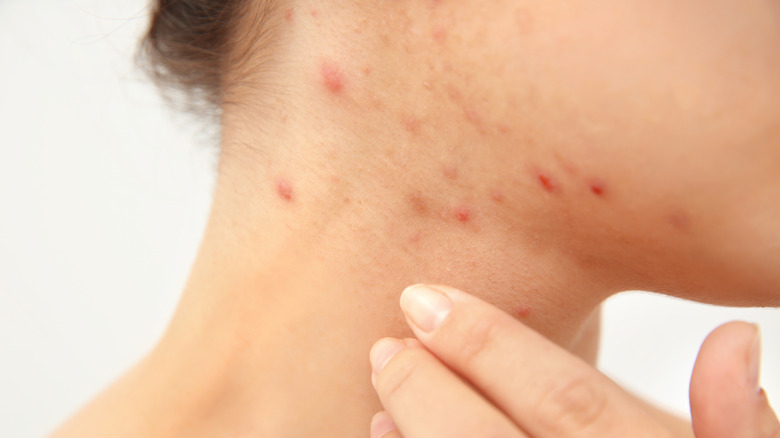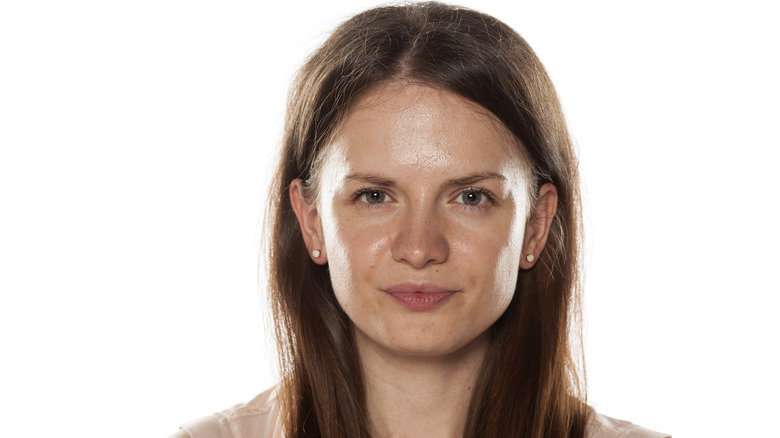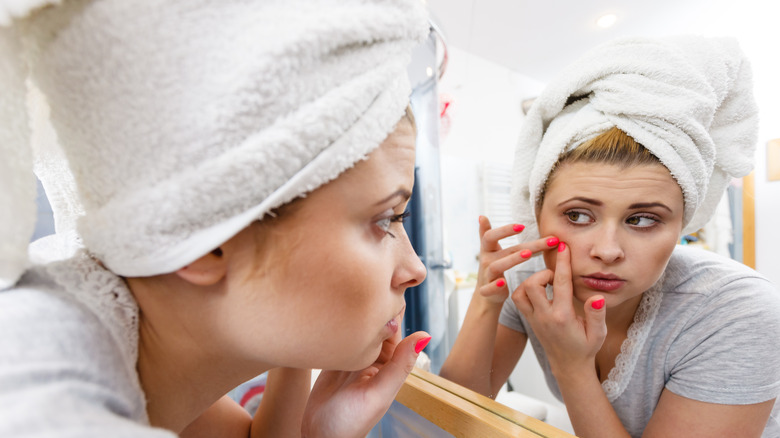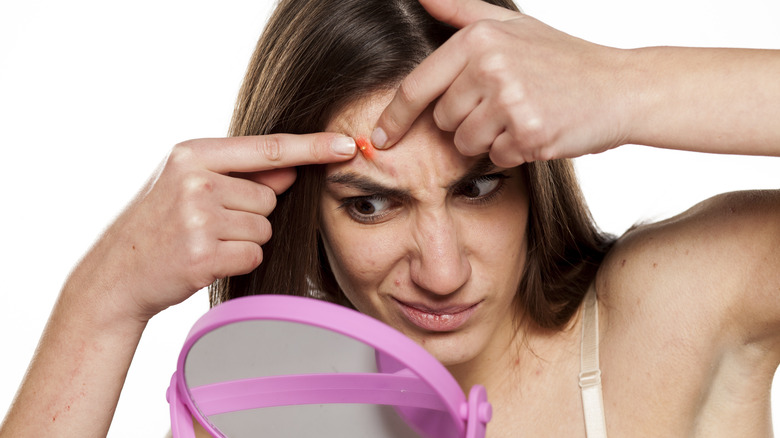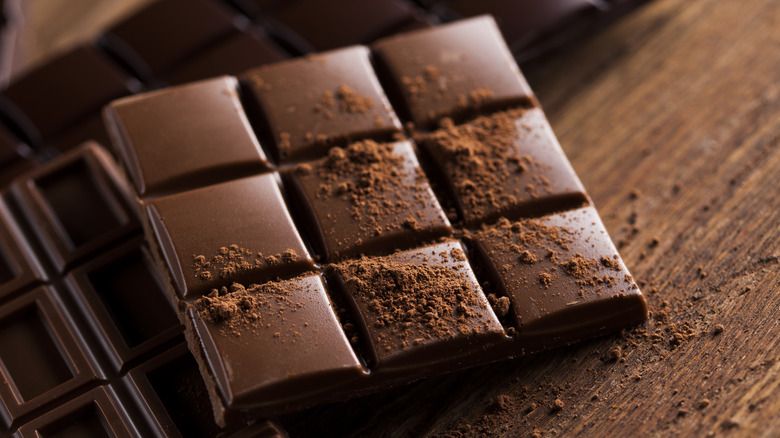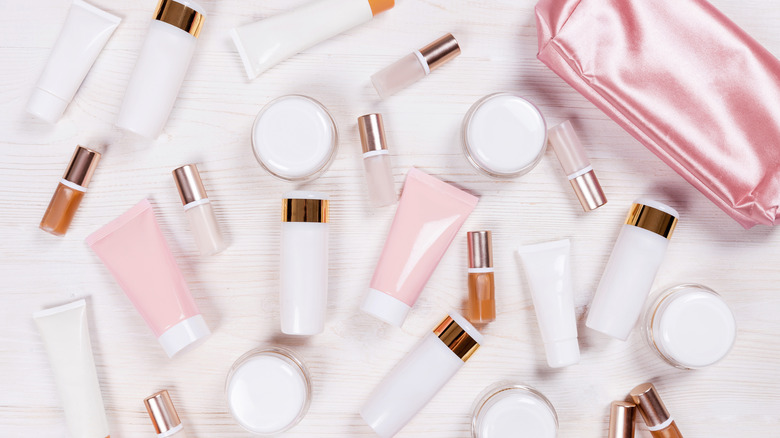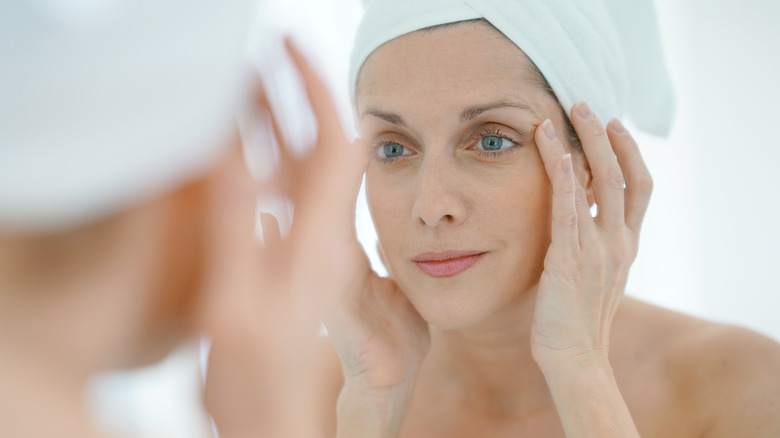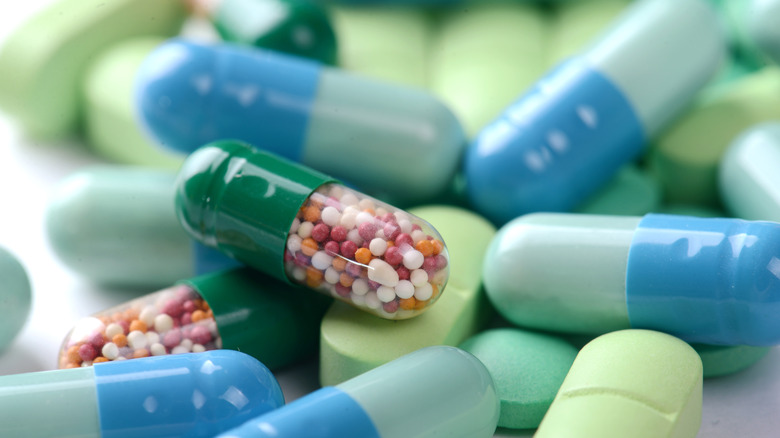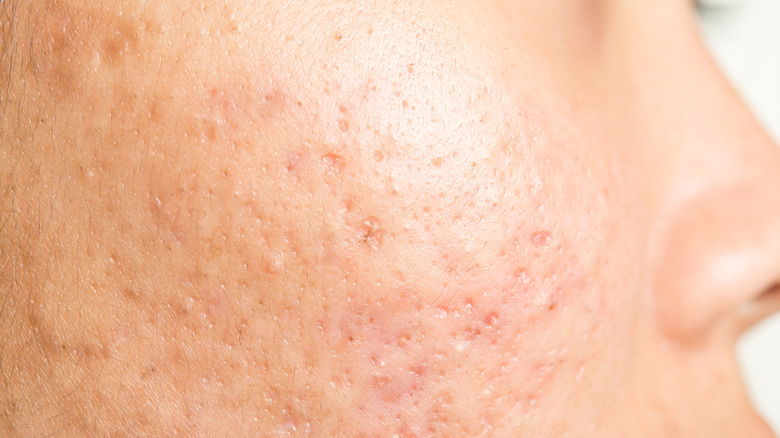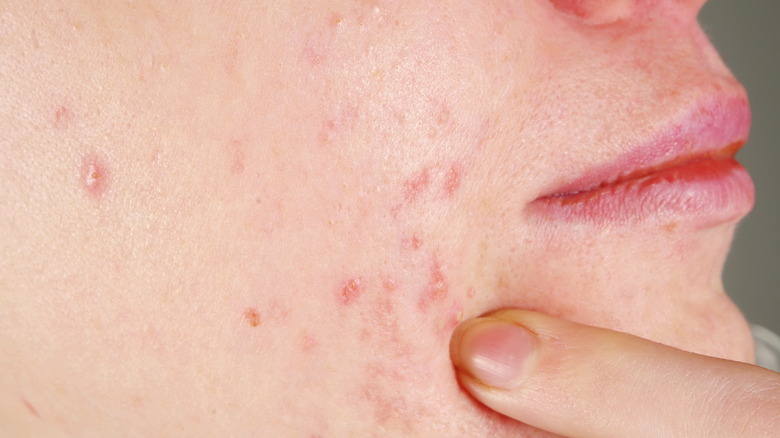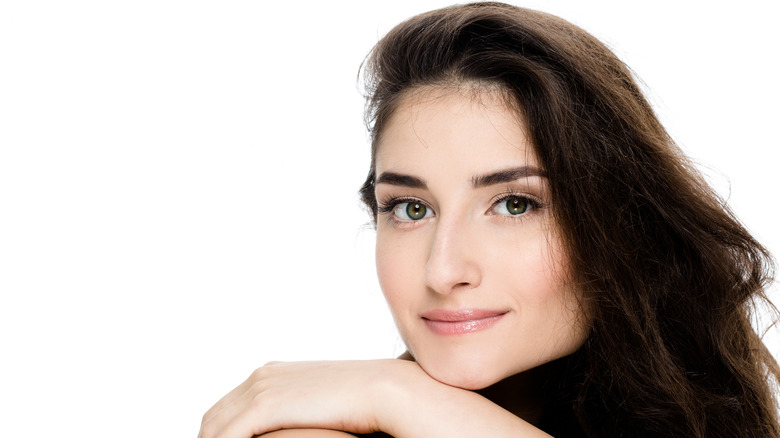What You Don't Know About Pimples
Whether it's just a giant red zit or chronic acne all over every region of your face, we've all dealt with pimples at one point or another. But why do they happen? Is there anything we can really do about them? What are the best and easiest ways to treat this condition?
From how to prevent breakouts in the first place to treating an already inflamed face, I asked several medical experts to reveal what you don't know about pimples. Some of the answers might surprise you and things you might not realize affect your skin could be the reason why you have a pimple (or two) right now. If you want clear skin, read on.
There are different kinds of pimples
Dr. Gary Goldenberg of Goldenberg Dermatology in New York City explained the difference between the various types of pimples to me. "Blackheads and whiteheads are earlier lesions of acne and are usually present together. They are caused by blocked pores and hair follicles and can be open (blackheads) or closed (white heads). Zits usually refers to pustules. These are lesions that look like pus-bumps and are the next stage of acne. They are usually inflamed and can cause scarring if not treated."
Then there is cystic acne, which is an entirely different monster. "Cystic acne lesions are the most severe type of acne. It is caused by deep bumps that are inflamed and may be painful. These lesions can lead to scarring and pigmentation," said Dr. Goldenberg.
Different kinds of pimples have different causes
There are multiple reasons why we breakout, according to Dr. Kristina Goldenberg, also of Goldenberg Dermatology. "Acne has many causes. It's usually genetic and tends to run in families," she said. "It also has a hormonal component in boys/girls and men/women. Hormones stimulate production of sebum (oil) that can cause plugged pores and follicles that become acne bumps. These can become inflamed. Bacteria called P. acnes is important in the inflammation process that causes pustules (zits) and acne cysts."
While we can't control all causes of acne, Dr. Goldenberg shared there are some causes we do have power over including improper skin care, poor makeup choices, sweating, and medication.
You should never squeeze a pimple
There are very few things as temping as squeezing a pimple. But Dr. Shari Marchbein of Manhattan Dermatology in New York City thinks it is never a good idea and it can often make a bad situation worse. "Pimples are basically a combination of bacteria, inflammation, and oil from surrounding oil glands. Squeezing a pimple is a big no no for many reasons. By manipulating the pimple, you are actually causing more inflammation and it may actually take days or weeks longer for the zit to resolve."
If you squeeze a pimple, an increased length of time to heal may be the least of your problems, as Dr. Marchbein explained to me, "[It] can lead to hyperpigmentation, or darkening of the skin in this area which can take upwards of six to twelve months to resolve. And the worst case scenario, is infection or scarring from over exuberant squeezing."
So the best policy is to keep your hands to yourself. "The bottom line," she stressed, "is keep your fingers and hands away!"
If you squeeze a pimple, do it safely
Sometimes, the temptation to squeeze a pimple is just too great. So, if you must, Nurse Nataly of iGlow Med Spa in Beverly Hills revealed to me the safest way to do it. First of all, she says wait for the right time. "The best time to go to pop a pimple is after taking a shower, because your pores are wide open."
After that, you need to prep your skin. "Be sure the skin is cleansed. Then soften the skin tissue surrounding pimple using wet gauze or a wet towel. Then, wrap a fresh gauze or wet towel around your index fingers on each hand and gently squeeze. You want to move your fingertips slowly towards the pimple and wiggle and slide your fingers slowly together until it opens up the pimple and illuminates the puss. After the pimple is popped you can use anything antibacterial to kill the germs. Witch hazel is great."
Nurse Nataly also warned not to use your fingernails to pop a pimple. "Your hands and nails hold millions of germs and once they touch an open wound they can make it grow into something much worse. Also, this bacteria is what causes scarring." But it's not always appropriate to pop every kind of people. "If the pimple is very deep, cystic acne or it is just not ready to pop, you must go to a professional to inject it with cortisone and use a high frequency blue light treatment to kill the bacteria."
There is a connection between what you eat and your complexion
You've probably heard that what you eat can directly affect your skin. While there has always been arguments as to whether this is true or not, it turns out that it is, according to Dr. Sheila Nazarian, who is a plastic surgeon in Beverly Hills. She revealed, "There are actually some studies out now that show a connection between acne and what you eat! Chocolate and dairy, for example, can cause an increase in acne break-outs."
So, if you tend to get breakouts, you may want to consider eliminating certain foods from your diet.
Pimples can be treated topically
The easiest and fastest way to treat a pimple is to go to a drugstore or pharmacy and pick up an over-the-counter treatment. There are several different kinds available, according to Dr. Sal Nadkarni (aka Dr. Sal), who is a Los Angeles based concierge physician.
"Numerous over-the-counter products including benzoyl peroxide, salicylic acid, and sulfur are available to treat acne," he told me. "Benzoyl peroxide kills bacteria that causes acne and removes excess oil from the skin. Salicylic acid prevents pores from becoming clogged. And sulfur removes dead skin cells that clog pores and removes excess oil from skin."
While everyone has a preference as to what acne product they think works best, for an average pimple, any one of these active ingredients will probably do the trick. You just have to figure out which works best for your skin through trial and error.
Some pimple treatments can also help reverse the signs of aging
For those with adult acne, dealing with pimples may not be your only skin concern. Dr. Sal also explained that certain topical pimple treatments can also help reverse the signs of aging.
"In addition to over-the-counter products, your doctor can prescribe medications including retinoids to fight stubborn acne. Topical retinoids such as Retin-A contain Vitamin A that promote skin turnover, which reduces the buildup of dead skin cells on pores. And due to Retin-A's ability to promote skin turnover, it can also be used to improve skin texture, diminish fine lines and wrinkles, and fade brown spots."
If you are concerned with acne and aging, Dr. Sal says Retin-A may be the way to go. "So along with treating acne, Retin-A can be used as a skin rejuvenator by subtly reversing the signs of aging."
Certain types of acne can be treated orally
People with some types of acne may need an oral treatment instead of or in addition to a topical one. But this is mostly for very severe cases of acne as Dr. Kristina Goldenberg explained to me. "Topical antibiotics and retinoids help with acne lesions from the earliest stage," she said. "Oral antibiotics and Acutance are usually reserved for the most severe type of acne."
Dr. Sal said that a dose of antibiotics can certainly do the trick. "Antibiotics, such as doxycycline, clindamycin, and erythromycin, are very effective in killing bacteria that causes acne."
But most people want to avoid needing oral treatments in the first place and Dr. Goldenberg explained, "There are many treatments for acne. Basic skin care is very important. Nutrition and vitamin supplementation is important as well."
Acne can scar your face
Pimples are not just unsightly and annoying, but according to Dr. Marchbein, this condition may lead to scarring. "Acne scarring is permanent damage to the collagen which underlies the top layer of skin. Scarring can result from even mild acne breakouts and typically looks like indentations in the skin (although sometimes may be raised)."
Instead of treating scars, she suggests trying to prevent them from happening in the first place. "The best treatment is always prevention. If you are breaking out, make sure to see your dermatologist for a comprehensive acne routine."
But if you already have scars, there are sill options to restore your skin. "If the damage is already done, various lasers including fractionated lasers such as Fraxel, or microneedling devices can be very effective," she said. "However multiple treatments with upwards of five to seven days of downtime are often needed. Additionally, various injectable fillers including hyaluronic acid fillers like Restylane and Juvederm and some newer longer lasting fillers can be used for those who aren't good laser candidates."
Some people never grow out of acne
Sometimes we think of acne as something that exclusively affects teenagers, but unfortunately, acne can affect people who are way past high school age. Dr. Nazarian told me, "Adult acne is a completely different beast from teenage acne. We tend to dry out teenagers so that they stop breaking out. In adults, we focus on cleansing pores and hydrating to decrease oil production." No matter what, you are never too old to deal with the ugly nuisance of pimples.
Clear skin is possible
With so many different kinds of treatments and advances in skincare technology to deal with acne, it is completely possible to have clear skin with the right amount of effort and preparation. If you use the proper products or combination of products and procedures, there is no reason to suffer from acne, especially now that you know almost everything there is to know about pimples.
